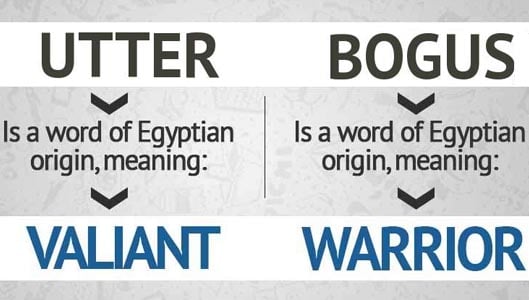‘The origin of your name’ spam webpage spreads on Facebook
What is the origin of your name? A website that has gone viral across Facebook is demonstrating how easy it is to fool some of the social media site’s users.
Seemingly harmless websites that offer features like finding the origin of your name, your IQ score, discovering what sort of personality you have or whether your crush are compatible based on your star-signs have always proved to be particularly good click-bait to push across social media.
But those with a more sceptical mind will understand that these websites tend to be more nonsensical than accurate. Whilst some can be fun or at least effective time-wasting exercises to relieve boredom, there are those that genuinely attempt to mislead or deceive in order to spread across social media.
The “what is the origin of your name” website is a particularly good example. The premise is simple – enter your name, select your gender and see where your name originates and what it means.
However the results are completely bogus, as illustrated by our title image above. The website simply splits the name into two parts and generates a completely random meaning and origin & translation for each part, then urges the user to share their result on Facebook.
Sponsored Content. Continued below...
Whilst we found no real malicious intent to the “find the origin of your name” website, other than to deceive the gullible into sharing their results onto Facebook, there is a potentially malicious element to these types of websites that could easily be implemented that could benefit scammers.
For example, such sites could lead to malware-laden webpages, or could attempt to lure visitors into handing over personal or sensitive information in order to “see your results”. They can be combined with phishing attacks to compromise Facebook accounts, or could trick users into installing rogue Facebook apps capable of hijacking accounts and spreading malicious or spammy links.
How do you go about avoiding these sites and ensuring you don’t fall for a scam?
– Don’t take links on Facebook at face value. Unsurprisingly, just because you saw a link to a quiz or test on Facebook, it doesn’t mean it’s accurate in any way. If, for example, something tells you where you name originated from, check if it is telling the truth. Google is at your disposal.
– Don’t assume your friends posted the link! Again if you see that a friend has posted a link on Facebook, it doesn’t always mean they actually posted it themselves. Webpages, malware and rogue Facebook apps are all capable of posting spammy links without the users knowledge or explicit consent. Ask your friend is they actually posted the link.
– Don’t jump through hoops. If you took some kind of test on a webpage and are now being asked to jump through hoops to retrieve your results, this is a strong indication that you are being duped. For example, you take an IQ test and need to “complete a simply survey” to get your results.
– Don’t install anything. Whether it’s a Facebook App or some kind of update, plugin or extension, if you don’t trust the webpage you’re on, don’t agree to install of download anything.
– Be careful logging into Facebook. If a webpage directs you to the Facebook login page, check it’s the actual login page – i.e. begins with www.facebook.com – and remember that if you’re already logged into Facebook, then you shouldn’t need to login again.
– Don’t give away personally identifiable information. Don’t give webpages access to personal information about yourself, like your email.
– Be cautious. There are plenty of spammy or malicious links that spread across Facebook, so approach with a sceptical mind.
As usual, stay safe out there. Remember to keep on top of this kind of nonsense by liking our Facebook page or our Twitter feed.
Keep up-to-date with all the latest cybersecurity threats and our tips to stay safe online. Follow us on Facebook, Instagram and Twitter.
Continued below...
Thanks for reading! But before you go… as part of our latest series of articles on how to earn a little extra cash using the Internet (without getting scammed) we have been looking into how you can earn gift vouchers (like Amazon vouchers) using reward-per-action websites such as SwagBucks. If you are interested we even have our own sign-up code to get you started. Want to learn more? We discuss it here. (Or you can just sign-up here and use code Nonsense70SB when registering.)
Become a Facebook Supporter. For 0.99p (~$1.30) a month you can become a Facebook fan, meaning you get an optional Supporter Badge when you comment on our Facebook posts, as well as discounts on our merchandise. You can subscribe here (cancel anytime.)
